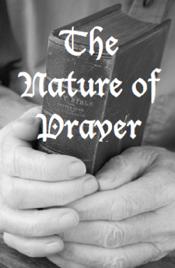
Psalm 63:1-11
The Bible Teaching Commentary
Bible Study Questions
Six Aspects of Godly Prayer
Paul J. Bucknell
Bible Study on Psalm 63
Prayer is the breath of our relationship of God. Below are Bible study questions on each of the six section of Psalm 63.
__________________________________________________________
Introduction Psalm 63:1-11
1) Sincere prayers (Psalm 63:1a).
2) Powerful prayers (Psalm 63:1b).
3) Great prayers (Psalm 63:2).
4) Affectionate prayers (Psalm 63:3-5).
5) Uplifting prayers (Psalm 63:6-8).
6) Faith prayers (Psalm 63:9-11).
Study Questions on Psalm 63
__________________________________________________________
This is a long Bible study. It might be good to break up this study on Psalm 63 into several studies or emphasize only a few sections. Each of the six sections is separated for clarity and continuity. See the studies above for referring to original study.
Sincere prayers often derive from desperate circumstances (Psalm 63:1a).
=> Go to article on Psalm 63:1a
1. Where was David when he wrote this Psalm? What might he be experiencing? (Think about outer and inner struggles).
2. How can God use desperate times like these in our lives? How was he using it in David’s life?
3. How would you define prayer? How does prayer relate to our sense of desperateness?
Powerful prayers openly reveal their dependence upon God (Psalm 63:1b).
=> Go to article on Psalm 63:1b
4. Go through Psalm 63:1 and write the different words that describe how David felt in his soul.
5. “I shall seek Thee earnestly” describes David’s future. How does he know? How can one make sure one follows up the commitments one makes.
6. Use different physical or spiritual situations to describe what David might be feeling there in Psalm 63:1.
7. How can we increase our spiritual sensitivities? How might our love for the world relate to this?
Great prayers always result from an encounter with God (Psalm 63:2).
=> Go to article on Psalm 63:2
8. What did David experience in his life (see 63:2)?
9. Think through David’s life and his experiences with God. How are they different from other great men of the Bible? Eg. Moses, Joseph, Elijah.
10. What was the resulting impression on David’s mind when he beheld God?
11. Have you ever met God? What happens in conversion? Would that be considered an encounter? Why or why not?
Affectionate prayers respond to God’s love with adoration (Psalm 63:3-5).
=> Go to article on Psalm 63:3-5
12. Psalm 63:3-5 is set up like a “because … therefore …” sentence structure. What is the because? What results because of that one thing? (The word ‘therefore is assumed here in the NASB).
13. There are two types of worship. Religious worship out of duty and heart worship from personal experience and knowledge. Think upon these verses. Which is described here? How do you know?
14. What kind of worship do you experience in your own life? How can we improve our focus? (Go back to the ‘because-therefore) pattern.
15. Do you think it is right to have ‘warm-up’ songs? Why or why not? What about ‘cross-over’ songs that do not clearly identify the one who people are singing of? Are they okay?
Uplifting prayers reflect on God’s past marvelous works (Psalm 63:6-8).
=> Go to article on Psalm 63:6-8
16. What is David doing in verses 6-8? What are some things he might be thinking of?
17. Is meditation always good? What do we need to do to make meditation ‘biblical’ and uplifting?
18. What happens when David begins to think of who God is and how He has worked in his life?
19. Desperate times force us to pause at times. Unemployment. Broken relationship. Transition. Does this mean we will meditate? Why or why not? How can we meditate in our regular routines of life?
20. How can biblical meditation help us through tough times?
Faith prayers enable one to face difficult situations with courage (Psalm 63:9-11).
=> Go to article on Psalm 63:1a
21. What is David being threatened with in these verses?
22. How many times does he use the word ‘will?’ How do these verses differ from the former three verses?
23. How does David find faith to trust God for what might happen to him in the future?
24. How do you handle threats, fears and intimidators? What is the difference between fears and faith?
25. Read through Ephesians 6:10-20. Who is our enemy? After discussing the spiritual armor, what does he speak of in 6:18-19?
Summary
26. What kind of prayer life do you presently have? How can it be better?
27. Choose one of the six prayer qualities listed here. Make deliberate plans to apply this to your own life. After which, pray that it would be part of your life.
This is the end of the study on Psalm 63. See other Biblical studies
1) Sincere prayers often derive from desperate circumstances (Psalm 63:1a).
2) Powerful prayers openly reveal their dependence upon God (Psalm 63:1b).
3) Great prayers always result from an encounter with God (Psalm 63:2).
4) Affectionate prayers respond to God’s love with adoration (Psalm 63:3-5).
5) Uplifting prayers reflect on God’s past marvelous works (Psalm 63:6-8).
6) Faith prayers enable one to face difficult situations with courage (Psalm 63:9-11).
Study Questions on Psalm 63Most of BFF articles are nicely formatted for printing or handouts including Psalm 63. Check out the great number of articles on the BFF Library all for one great low price including shipping and handling. Read here for testimonies.








